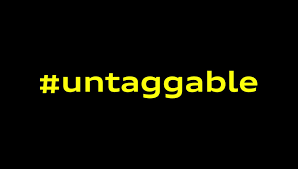Beware “Trumpisms” in branding

I recently received a promotional email from the local New Zealand Audi distributor.
It was promoting the new Q2 SUV and claimed that this was like nothing before it, a game-changer. With a cute #untaggable idea/graphic meant to reinforce the notion that it’s something completely new and indescribable.

From the Audi NZ website.
“This isn’t just another SUV. Labels simply don’t apply. Because the revolutionary Audi Q2 breaks entirely new ground. The all-new genre-defying Audi Q2.”
My curiosity was piqued.
Was this just more of the same marketing spiel or was there some real and important innovation here? So I went along to the website and started reading — looking for that revolutionary innovation. Do you think I could find it? Nope.
Turns out others agree, as in this review by Jack Rix at Top Gear: https://www.topgear.com/car-reviews/q2/first-drive.
Jack’s review points out that there’s really nothing revolutionary going on here at all. It’s essentially a jacked-up A3 running on Audi/VW group’s shared MQB platform and a sister to the VW Tiguan.
“It’s not revolutionary in any particular area.”
How disappointing, but are you surprised? Just another rebranded, superficially redesigned SUV — similar to its sister vehicle — the VW Tiguan (albeit the VW is several thousand dollars cheaper and lacking a few luxuries). This badge engineering wrapped in hyperbole is one of the worst kinds of branding practices out there. In the end, it just disenfranchises fans and customers.
Brand’s like Audi need to be much more careful about what they claim in their marketing — particularly in a world besieged by fake news, unbelievable hyperbole, statements made with little factual basis, disingenuous claims or even outright lies.
Audi is not alone.
Have a look at some of the recent vehicle announcements by Mercedes Benz:
https://youtu.be/q0xOIG_NBdY (start watching at about 2:29)
The hyperbole is hard to listen to. I can just imagine the marketing and branding specialists coach the presenters so that they cover off every bullet point in their list of things they consider that the market wants to hear.
The reality is they are late to the Ute/Small Truck party and have partnered with Nissan to make it happen.
What we see in the video is a rebranded, reworked Nissan ute with some Mercedes-Benz parts stuffed into it.
Don’t get me wrong — I like their products and I own a Merc — but please, enough of the bullshit.
It’s just a turn-off.
This bending and massaging of the facts has led us to a point where many have lost faith in brands and the media, that we used to trust implicitly. It doesn’t need to be that way.
Brands can and should respect the intelligence of their audience and their customers. Above all else, they should shoot straight, be honest, don’t over-promise, and under deliver. As a brand do you want to be that person?
Perhaps in a me-too world where there are scant differences between products from different manufacturers, the hyperbole is all that is left to differentiate products. That’s a sad fact and brands can perhaps be forgiven for falling into this cycle of product upgrades and releases, often calling it innovation.
However I believe the tide is turning (in the developed markets anyway) on mass consumerism, the type of consumerism where we happily ignore the facts and hand over our money to feel part of our preferred Brand’s tribe. The new generations are less likely to be swayed and are looking for more authentic, honest, and sometimes two-way conversations with brands.
Despite record sales of private vehicles in recent times — the real innovation is happening in automation, electric powered and self-driving vehicles and much of it is coming from outside the established auto manufacturers.
If you want real, groundbreaking, innovation look in that direction >>>
Happy branding :)
Beware “Trumpisms” in branding
AUDI’s #untaggable — should really be #unbelievable


